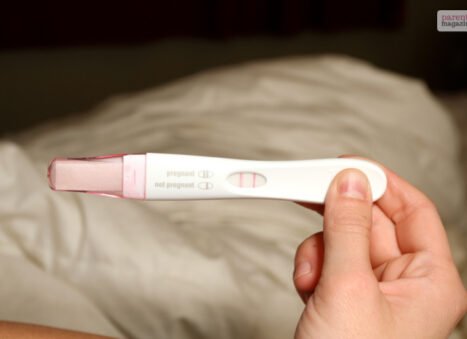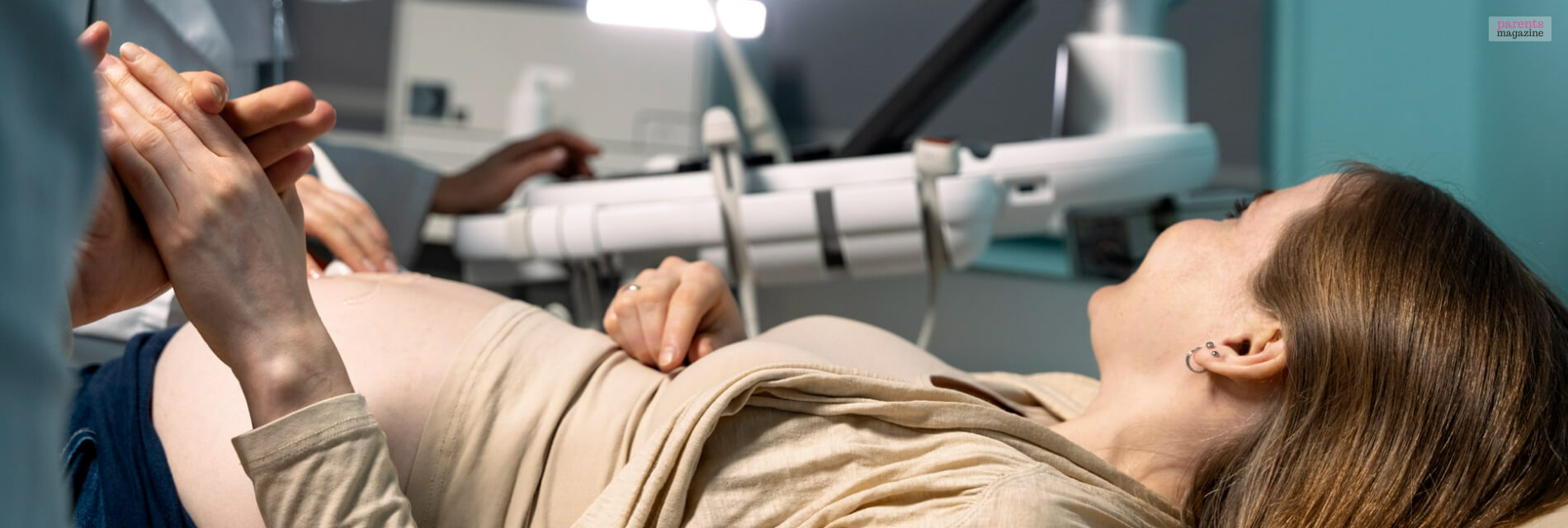
Fetal Doppler: All You Have To Know About It
Being pregnant might be a new and exciting experience, but you would constantly need the assurance that everything is okay with the little one inside you. You might want to connect in some way. Well, this is not just you; every parent is concerned about this, and that is when many people buy fetal dopplers.
A fetal Doppler helps you determine the baby’s heartbeat and if everything is healthy with the baby or not. This is the only way you get to know that your baby is fine in the initial months of pregnancy. This time, the baby cannot move or kick, so there is no possibility of counting the kicks, so you have to rely on the Doppler to check their heartbeat and heart rate to see if everything is okay with them.
The ultrasound waves detect the heartbeat. A healthy heartbeat primarily indicates a healthy pregnancy.
What Is A Fetal Doppler?
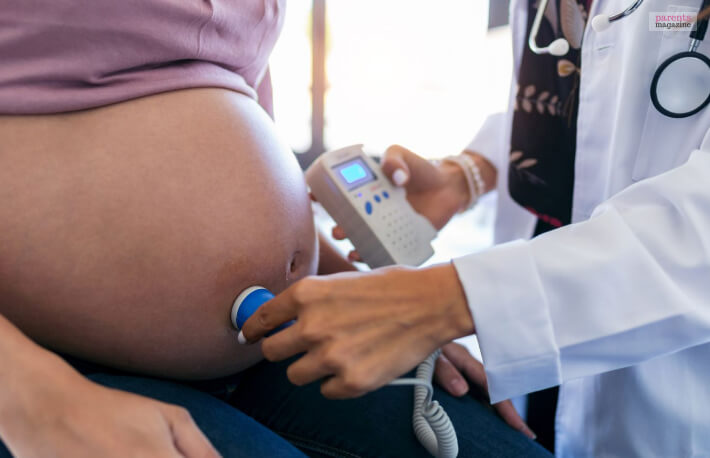
A fetal doppler is an ultrasound tool that makes use of sound waves to listen to the baby’s heartbeat. Midwives and doctors use this device to determine the fetal heartbeat from the later part of the first trimester and since then used through the pregnancy period to keep a check on the baby. You will find over-the-counter fetal dopplers recently for at-home uses.
When Should You Use The Fetal Doppler Machine?
The fetal heart starts to bet from around five to six months of pregnancy. During this tim, a transvaginal ultrasound can detect the heartbeat. The sound of the heart beating needs to be a bit strong for using a fetal doppler to detect it. You can use this device to keep a check on the fetal heartbeat during pregnancy as well as during labor.
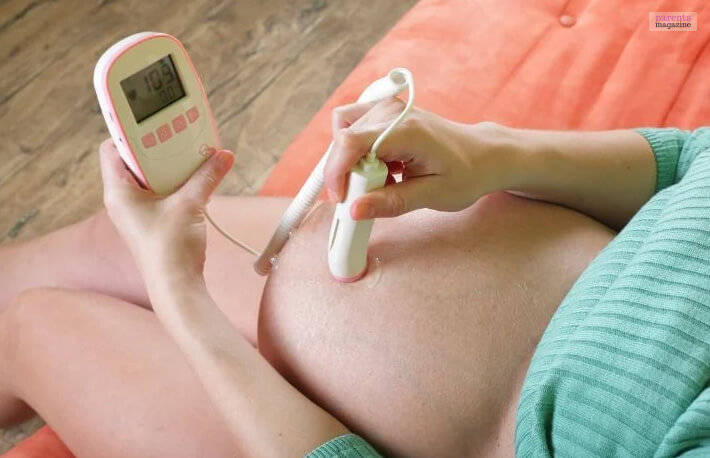
During Pregnancy:
The fetal heartbeat can be detected by the fetal Doppler around the ten to twelve weeks of pregnancy. Every pregnancy is different, and so is every woman’s body during pregnancy. That is why it might be a bit difficult to exactly tell a time because some might detect it a while early, and for some, it could take a while.
Your doctor might make an attempt to find a heartbeat around the tenth week of your pregnancy, but there is no cause for concern if you can’t hear a heartbeat at this stage. If this continues till week 12 or more, then there might be some problems, but that is not always the case.
There are some reasons why fetal heartbeat is difficult to detect in the early stage of pregnancy.
- The due date was miscalculated, and you are not so far along in your pregnancy.
- If your uterus is tilted, it becomes difficult to determine the fetal heartbeat.
- The sounds in the placenta are overpowering the paint sound of your baby’s heartbeat.
- The fats you have in your abdomen are acting as a barrier and are making it difficult to determine fetal heart tones.
- Or it might happen because you are using an at-home doppler.
If your doctor or midwife fails to detect a heartbeat when you are almost close to the 12 weeks of your pregnancy, then it is best you go for an ultrasound, which would get you a clear answer and would detect the heartbeat much faster. An ultrasound can detect a heartbeat as early as six weeks during the pregnancy.
But when you have got to the second trimester, the doctor would use a fetal doppler at every visit to check on the health of the baby.
During Labor:
During your prenatal visits, the doctor will definitely check your baby’s heartbeat. But it doesn’t stop there. Once you go into labor, the doctor can still check your baby’s heartbeat.
You have to monitor the fetal heart rate continuously. Otherwise, the doctor would check it with the help of a fetal doppler when they find it required.
In the first stage, after going into labor, every 15 to 30 minutes, the doctor will check the heart rate intermittently. And when you reach the second stage, the doctor will monitor the heart rate every 5 to 15 minutes. Frequent checkups are a must for people with complicated pregnancies.
How To Use The Doppler Fetal Monitor?
A fetal Doppler is an ultrasound that makes use of sound waves for detecting the placenta and fetal sounds. It uses the Doppler effect to detect how the frequency of the sound waves changes when the observer moves away or towards the sound source.
The fetal Doppler has two separate parts: a cord connects the main unit and the probe, and both parts. For using this device, a gel is first placed on the end of the probe, and then the probe is moved around the woman’s bare abdomen to detect the fetal sounds.
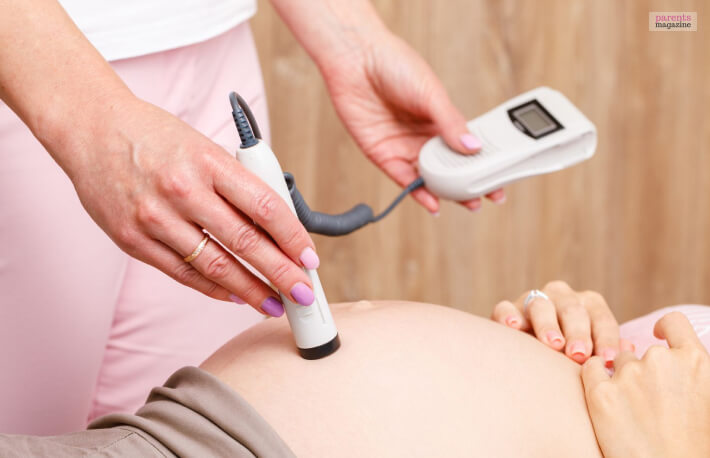
The main unit has speakers, which makes the sound audible to the doctors and the mother. A few of them even show the number of heartbeats on the main unit, while the others need a person to count it manually. Generally, there are 110 to 160 heartbeats per minute.
If the reading shows an abnormal heart rate, that means the baby is not getting enough oxygen or there is some other problem. If the number is not within the range, go for a expert checkup.
Using Dopplers: A General Guide
Most of the dopplers come with their own instruction manual. But if you are looking for a general guide, then read the section below:
- To begin with, you have to insert the batteries first into the doppler.
- Lie back and get yourself in a comfortable position.
- Lift your top a little and lower your pants to access your whole abdomen.
- Apply any sonogram gel on your lower abdomen. And if you do not have one at home, you can use alow-vera gel as an alternative.
- Then, you have to turn on the Doppler and slowly move the probe around until you hear your baby’s heartbeat. Move the probe below your belly button to get a clear sound.
- Be careful because you will get to hear your own heartbeat as well as a pulse from the arteries as well. The baby’s heartbeat is a lot faster than either of these.
How Early Will The At-Home Doppler Work?
A few brands claim that their fetal doppler detects heartbeat from 9 weeks of pregnancy, while there are brands that work from 16 weeks into the pregnancy. There are also a few brands that mention that their product would only work in the third trimester, that is, from the 28th week into the pregnancy.
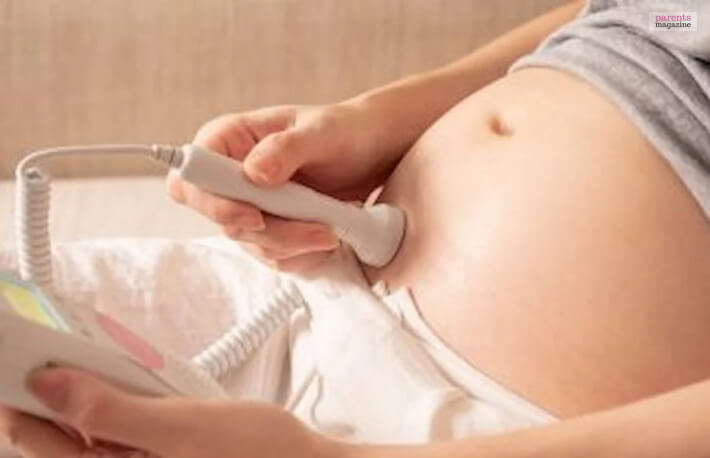
But during this time, you should also be able to feel some of their kicks, and their heartbeat should be detected with just the help of a stethoscope. But if you are looking for a fetal Doppler to detect your baby’s heartbeat before you have reached the 9-week mark, then you will be disappointed to know that such a Doppler doesn’t exist.
After getting the at-home Doppler, you might want to use it to listen to the heartbeat. But do not panic if you cannot detect a heartbeat. This is because it is mostly from the second trimester that a Doppler starts to detect.
Is It Safe To Use A Fetal Doppler At Home?
Fetal dopplers are designed mainly for the use of professionals in a medical setting. When used by trained professionals, there is no risk in using the doppler. When these devices are used in the presence of a trained person, then taking an ultrasound or using a doppler is okay.
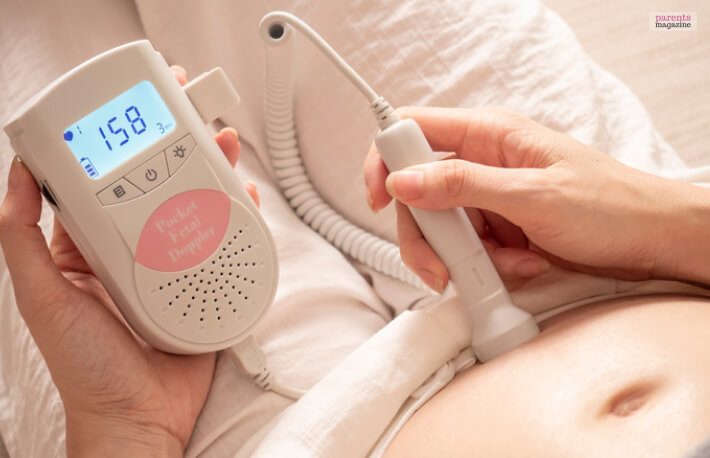
Till now, there have been no instances where using a doppler has harmed an unborn child. Or even a pregnant woman in any way. However, the FDA advises not to use a Doppler repetitively or recreationally. This is because it is not known what might happen when it is used again and again.
Ultrasound has the ability to heat and produce small bubbles in tissues. When they are exposed more to it, with the at-home tests, the chances harming the fetus and mother increase. If an untrained person uses it, then they will misinterpret the readings. This might cause an unnecessary situation of panic among the family.
Safety Concerns With At-Home Doppler
Though the at-home dopplers are appealing, they come with a few safety concerns. Back in 2014, the FDA advised not to use the device. And only use it in the presence of a professional when it is necessary.
There is no evidence that ultrasounds have caused any problems or harmed any person. But it is best not to take any risks when it comes to your child’s safety. According to a biomedical engineer of the FDA, “Ultrasound can heat tissues slightly, and in some cases, it can also produce very small bubbles (cavitation) in some tissues.”
This becomes a cause of concern as some parents would want to use it every day to check their fetal heartbeat. But if you are using it for just a couple of minutes a week, that is not something alarming.
At-home dopplers are harmful because they can often provide you with false assurance, informs the National Health Service (NHS) from the United Kingdom.
The British Medical Journal reported a case in 2009 when a 38-week pregnant woman noticed that her baby was not moving as much as it should, but she found the heartbeat of the baby through a fetal Doppler.
And she did not take the matter up with a professional and thought everything was healthy with her baby. But she had a stillbirth.
It is possible that the Doppler detected her heartbeat, and she took it for the baby’s, or it was just some vibration from the placenta. If she had gone to a doctor after detecting that her baby wasn’t moving much, then she could have avoided the stillbirth.
What To Do?
If you suspect that anything is wrong with your baby, if you think they are moving less, or you find out that you are spotting suddenly or getting stomachaches, you should never rely on the fetal dopplers.
Visit the doctor without waiting a while. It might happen that there is something wrong, but the baby still has a strong heartbeat. Why take any risk? Just contact your doctor or go for a checkup.
This is a time when you should take care of yourself and your baby. You have to take even the slightest of concerns seriously and seek medical help when things start to turn serious.
Other Issues:
Most couples get the fetal Doppler to get rid of the anxiety. And also check for themselves if everything is okay with the little one inside. But some dopplers might have the exact opposite effect. If you cannot find the heartbeat, it will cause panic among the parents. But there might be some other reasons behind it.
- The device might be broken. Most of the dopplers are not approved by any regulatory body, so they do not get their quality checked.
- Maybe you are not operating it correctly.
- It might be too early to detect the fetal heartbeat.
- Maybe your baby has moved into some position, which is making it difficult to detect the heartbeat.
Wrapping Up!
It is understandable that you are trying to hear the heartbeat of your baby out of concern or simply because you love the sound of it. However, we don’t recommend using these devices without any supervision. Even if you have one of these at home, it is better you always seek professional help in these sensitive matters. You will not understand the readings exactly and might misinterpret them.
Use it at home, but never replace it with your doctor’s appointments. Get checked regularly, and don’t miss your appointment with an OB-GYN. And ask away when you are concerned about anything.
MORE FOR YOU:
👉 The Benefits Of Sex Education For Kids In Schools
👉 How To Track a Child’s iPhone from Android In 3 Steps
Already have an account?
Sign In
Create your account
User added successfully. Log in








